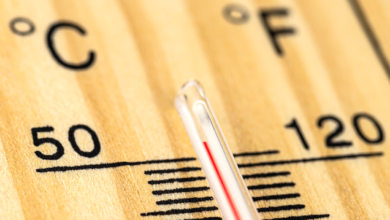Temporarily overrun 2°C causes a loss of habitat in the oceans that lasts for centuries

The loss will affect 13% of epipelagic marine species
– Exceeding the threshold of 2 degrees can cause a loss of habitat in the oceans irreversible for centuries for many marine species living in the first 200 meters of water column. A combination of higher ocean temperatures and oxygen loss would be fatal to 13% of species whose habitat is in the epipelagic belt. Just the most important ones for fishing.
This is supported by a study published in Communications Earth & Environment, the first to come to the conclusion, contrary to the current scientific consensus, that the loss of habitats in the oceans would be “irreversible”. The concept of irreversibility should not be understood in an absolute sense but in relation to the human temporal scale: specifically, according to the study, uninhabitable conditions would last at least until 2300.
To arrive at this result, the authors cross-referenced predictions on the increase in global warming and its effects on ocean deoxygenation with the metabolic index of 72 species of fish. “This index brings together the perturbations of global warming with their effects on the distribution of life in the oceans, taking into account the relationship between the supply of oxygen and demand at rest; both depend on the partial environmental pressure of oxygen, from temperature and species-specific physiological terms,” explain scientists.
An important aspect that emerges from the study is the timing by which the impact of habitat loss in the oceans would become visible. Most of the damage would occur after a global temperature return below 2 ºC.
“These changes are likely to take centuries to recover, even if the global temperature returns to its initial level. As our analysis considers a relatively rapid increase and decrease in global temperature, it is expected that a “real” overshoot and the implementation of negative emissions following the implementation of CDR [direct capture of CO2 from air] would take much longer”, conclude the authors.





